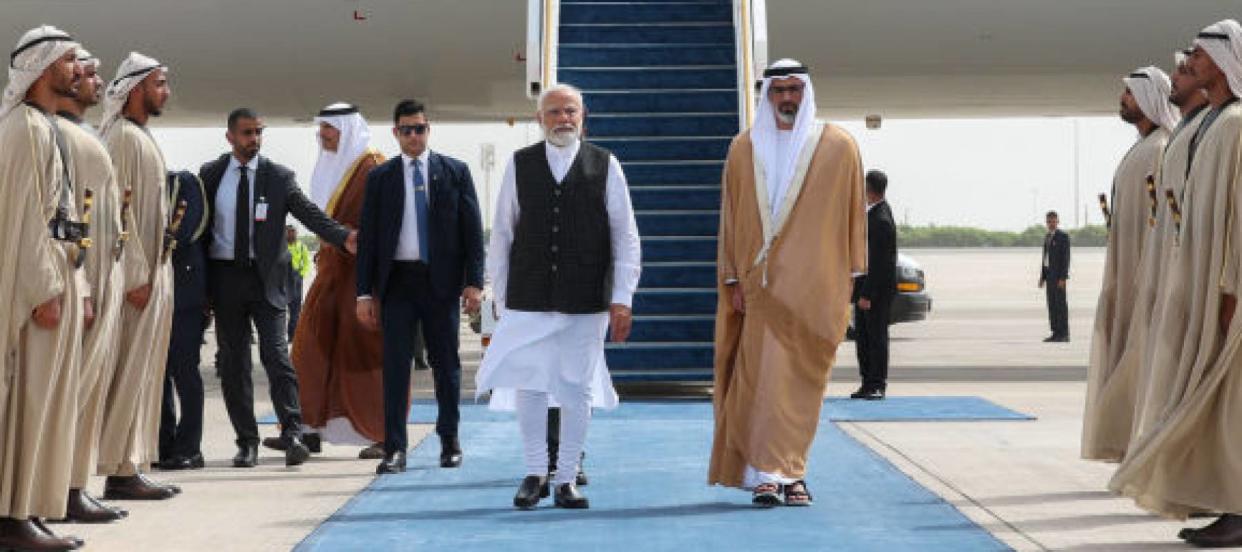
https://www.aol.com/were-investing-more-security-guards-103000150.html
or decades, no global currency has stood a chance of dethroning the U.S. dollar. But a growing coalition of countries is seeking to do just that — and they're already making moves.
The Indian government announced on Aug. 14 that the country’s leading petroleum refiner, Indian Oil Corp., used the local rupee to buy one million barrels of oil from the Abu Dhabi National Oil Company — not the U.S. dollar.
Don’t miss
Super-rich Americans are snatching up prime real estate abroad as US housing slumps — but here's a sharp way to invest without having to move overseas
Worried about the economy? Here are the best shock-proof assets for your portfolio. (They’re all outside of the stock market.)
Thanks to Jeff Bezos, you can now use $100 to cash in on prime real estate — without the headache of being a landlord. Here's how
This monumental transaction follows the sale of 25kg of gold from a UAE gold exporter to a buyer in India for around 128.4 million rupees ($1.54 million), according to Reuters.
And with both the UAE and India now members of the BRICS bloc, a coalition that seeks to empower trade between the emerging economies of its member countries, it's likely we'll see more global trades in currencies other than the dollar.
So, what could this mean for the U.S. dollar's future?
Trade talks
Last year, India’s central bank revealed a new framework for settling global trade in rupees — an idea that came into fruition last month, when India is the world’s third biggest oil importer and consumer signed two agreements with the UAE.
First, the two giants agreed to settle trade in their local currencies — in an effort to cut transaction costs and eliminate dollar conversions. They also agreed to set up a real-time payment link to simplify cross-border money transfers.
Advertisement
The agreements will enable “seamless cross-border transactions and payments, and foster greater economic cooperation,” the Reserve Bank of India explained in a recent statement.
Read more: 'Hold onto your money': Jeff Bezos says you might want to rethink buying a 'new automobile, refrigerator, or whatever' — here are 3 better recession-proof buys
De-dollarization trend
Powerful nations around the world — particularly China and Russia — are keen to dethrone the dollar in response to aggressive U.S. sanctions and foreign policy plays.
In August, the BRICS bloc agreed to admit Saudi Arabia, Iran, Ethiopia, Egypt, Argentina and the UAE to its ranks. A common desire among multiple bloc members is to level a global economic playing field they feel is overreliant on the U.S. dollar.
This is part of a larger trend — deemed “de-dollarization” — that has left many questioning whether the dollar’s days of dominance are over. But Treasury Secretary Janet Yellen said no currency currently exists that could displace the greenback.
Yellen’s reassurance follows a 8% decline in the dollar’s share of global reserves in 2022. In an effort to diversify, central banks worldwide have been starting to ditch their dollar reserves in favor of gold.
What to read next
Are you ready for your first year of retirement? Here are 4 things you might not expect — but definitely need to prepare for
The US dollar has lost 98% of its purchasing power since 1971 — invest in this stable asset before you lose your retirement fund
Macro guru: The US government may 'restrict your right' to pull money out of banks as panic escalates — here's what he likes for protection
This article provides information only and should not be construed as advice. It is provided without warranty of any kind.
No comments:
Post a Comment